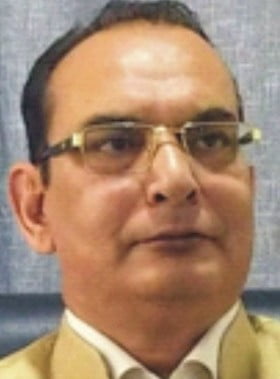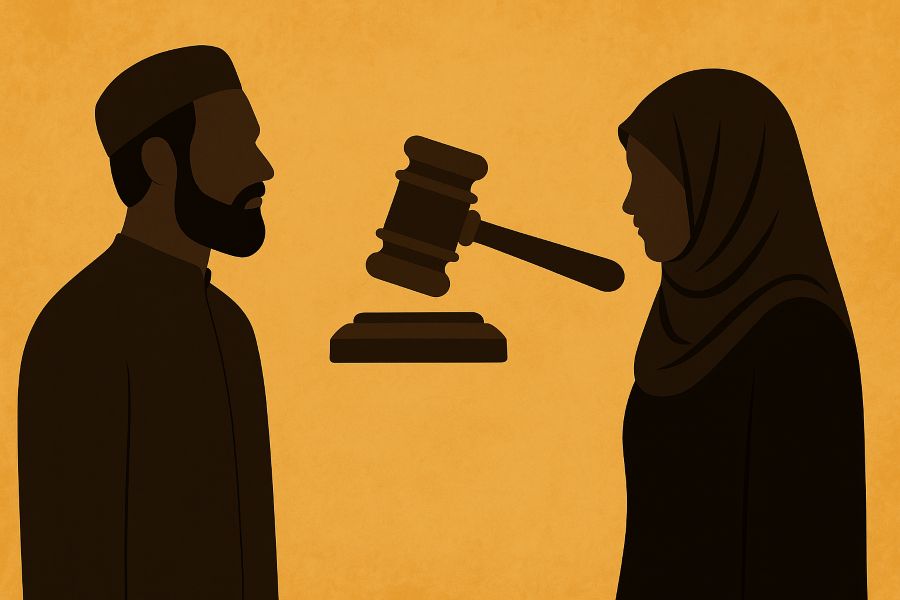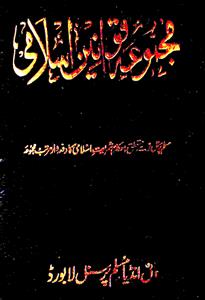The Supreme Court’s latest remarks push jurists and community leaders to reexamine practice, procedure, and misuse.
Recent observations by a Supreme Court bench on the topic of Talaq have yet again opened a Pandora’s box. The issue could be resolved once and for all if Muslim jurists review the practice in keeping with modern times.
On November 19, a Supreme Court bench questioned the legality and social impact of Talaq-e-Hasan, as practiced by Indian Muslim men. It particularly objected to husbands using lawyers to issue divorce notices and indicated that the matter may be referred to a Constitution Bench.
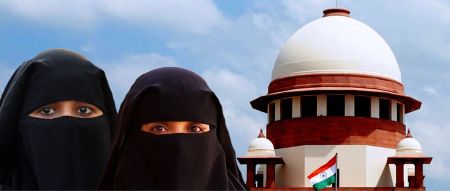
Supreme Court examines the procedure and communication method of Talaq-e-Hasan.
The bench questioned why lawyers or other individuals were engaged to send Talaq-e-Hasan notices on behalf of husbands. It called this an affront to women’s dignity and asked why a husband who can approach a lawyer cannot directly communicate with his wife.
In its observations, the Supreme Court signalled a possible constitutional rethink of Talaq-e-Hasan, but it should be noted that different Personal Laws have legal sanctity under Article 15 of the Constitution.
Going by the Supreme Court’s latest remarks, it becomes clear that the apex court has not questioned the legality of Talaq-e-Hasan itself, but rather the manner in which the husband communicated with his wife by engaging a third party.
Talaq in the Holy Qur’an
To clarify doubts regarding the different types of Talaq available to Muslim men, Islamic jurists (Muftis) note that in Surah Talaq, Ayat 1, Allah (SWT) first expresses His displeasure with Talaq and states that this act should be resorted to only when all options of reconciliation have been exhausted.
It further lays down the details of the entire process. Allah’s displeasure over Talaq is also mentioned in Surah Nisa, Ayats 19 to 29.
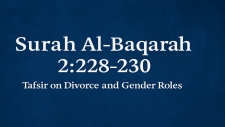 In this regard, it should be noted that the Holy Qur’an, in Surah Baqarah verses 228 and 229, prescribes that after being given Talaq, a woman must go through the period of Iddat before she can remarry.
In this regard, it should be noted that the Holy Qur’an, in Surah Baqarah verses 228 and 229, prescribes that after being given Talaq, a woman must go through the period of Iddat before she can remarry.
This means that she can remarry only after the Iddat period is over. During this period, the husband gets an opportunity to reflect on what he has lost, and if he has pronounced only one Talaq, he may take his wife back during Iddat without a second Nikah.
Further, the Iddat period is obligatory. It has been established by medical science that a woman’s body is cleansed of the DNA of her former husband during the Iddat period of 84–90 days. Thus, if she remarries after Iddat, no physical linkage to her former husband remains.
Types of Talaq
In India, Islamic Fiqh (jurisprudence) details Talaq primarily in two books:
1. Majmua-e-Qawanin-e-Islami, published by the All India Muslim Personal Law Board (in Urdu and English).
Pages 225–226 outline the correct manner of pronouncing Talaq, stating that it should be pronounced only when the wife is not pregnant, not menstruating, and when the husband has not cohabited with her since her last period. In the case of older women (post-menopause), this condition does not apply.
The book further states that pronouncing more than one Talaq in a single month is not permissible, nor is pronouncing it in an inebriated condition.
2. Qamus al-Fiqha (Vol. 4), published by Mahad-ul Aali Al Islami, Hyderabad (p. 349), describes the forms of Talaq permitted in Islam.
Talaq-e-Ahsan is the most preferred type. Under Talaq-e-Ahsan, pronouncing the word Talaq once is sufficient, provided the prescribed conditions are met. If the Iddat period (usually 84 days) passes after the first pronouncement, the Talaq becomes formal.
It is preferred because even after pronouncing it once, the husband can take his wife back during Iddat. After Iddat, a fresh Nikah is required for reunion. This form is also known as Talaq-e-Ba’in.

Iddat offers a period for reflection and possible reconciliation.
To further elucidate, Message of the Qur’an to Muslims by S.S.U. Tabrez summarises the procedure for pronouncing divorce in the most acceptable manner according to the Qur’an and Sunnah, as explained in Islamic jurisprudence:
If divorce appears to be the only option, it should be pronounced during a period in which the husband has not approached his wife after her menstruation. A single pronouncement should be made in the presence of two mature witnesses.
Unless serious reasons compel her departure, the woman must continue to stay in the husband’s house for three menstruations, the waiting period after the pronouncement of divorce.

This waiting period, during which they live together without marital relations, gives both the opportunity to reassess their decision.
If they decide to mend the relationship, the husband may revoke his pronouncement before the waiting period expires, either by approaching the wife or verbally revoking it.
This decision should also be communicated to two adult witnesses. If the husband maintains his decision, separation is established after Iddat. If they wish to reunite later, it is allowed only through a fresh Nikah.
The second pronouncement of Talaq is also revocable. The same reunion procedure applies. However, if after a second reunion the discord continues and Talaq is pronounced for the third time, it becomes irrevocable.
Reforming Talaq Practices
It is the duty of Islamic scholars to condemn and forbid unethical practices introduced gradually by male chauvinists or interest groups—such as lawyers—in violation of the spirit of Islam.
Unfortunately, Muslim scholars, by sweeping prevailing ills within the Ummah under the carpet, are shying away from their prime responsibility of Nahi-‘anil-Munkar (preventing forbidden or unethical acts).
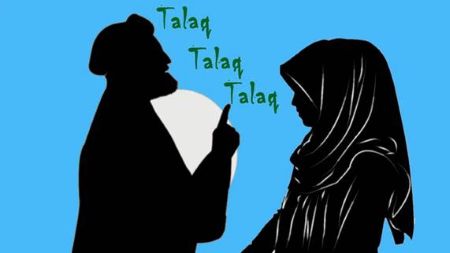
Triple Talaq — a practice widely debated in legal and religious contexts.
This raises the question of how Talaq should ideally be pronounced. While most Islamic jurists believe it should be done in the presence of witnesses, in reality, Talaq is often pronounced privately, making this requirement difficult.
Nevertheless, keeping in mind Allah’s displeasure and the requirements of modern times, Muslim bodies like the AIMPLB should consider making witness presence a compulsory advisory. This may give an angry husband a chance to reconsider before pronouncing Talaq in front of witnesses.
The Board should also publish a booklet in all major Indian languages, clearly explaining the entire process in simple and unambiguous terms.
On its part, it would help if the Indian judiciary empanelled qualified Muftis. Courts, guided by them, could then base decisions on authoritative interpretations rather than being exasperated by unfamiliar Arabic terms and sources. ![]()
_________
Also Read:
Anandpur Sahib Special Session — A Political Stunt in the Name of Piety
Guru Tegh Bahadur: The Martyr Who Defended Freedom of Conscience
Disclaimer : PunjabTodayNews.com and other platforms of the Punjab Today group strive to include views and opinions from across the entire spectrum, but by no means do we agree with everything we publish. Our efforts and editorial choices consistently underscore our authors’ right to the freedom of speech. However, it should be clear to all readers that individual authors are responsible for the information, ideas or opinions in their articles, and very often, these do not reflect the views of PunjabTodayNews.com or other platforms of the group. Punjab Today does not assume any responsibility or liability for the views of authors whose work appears here.
Punjab Today believes in serious, engaging, narrative journalism at a time when mainstream media houses seem to have given up on long-form writing and news television has blurred or altogether erased the lines between news and slapstick entertainment. We at Punjab Today believe that readers such as yourself appreciate cerebral journalism, and would like you to hold us against the best international industry standards. Brickbats are welcome even more than bouquets, though an occasional pat on the back is always encouraging. Good journalism can be a lifeline in these uncertain times worldwide. You can support us in myriad ways. To begin with, by spreading word about us and forwarding this reportage. Stay engaged.
— Team PT
